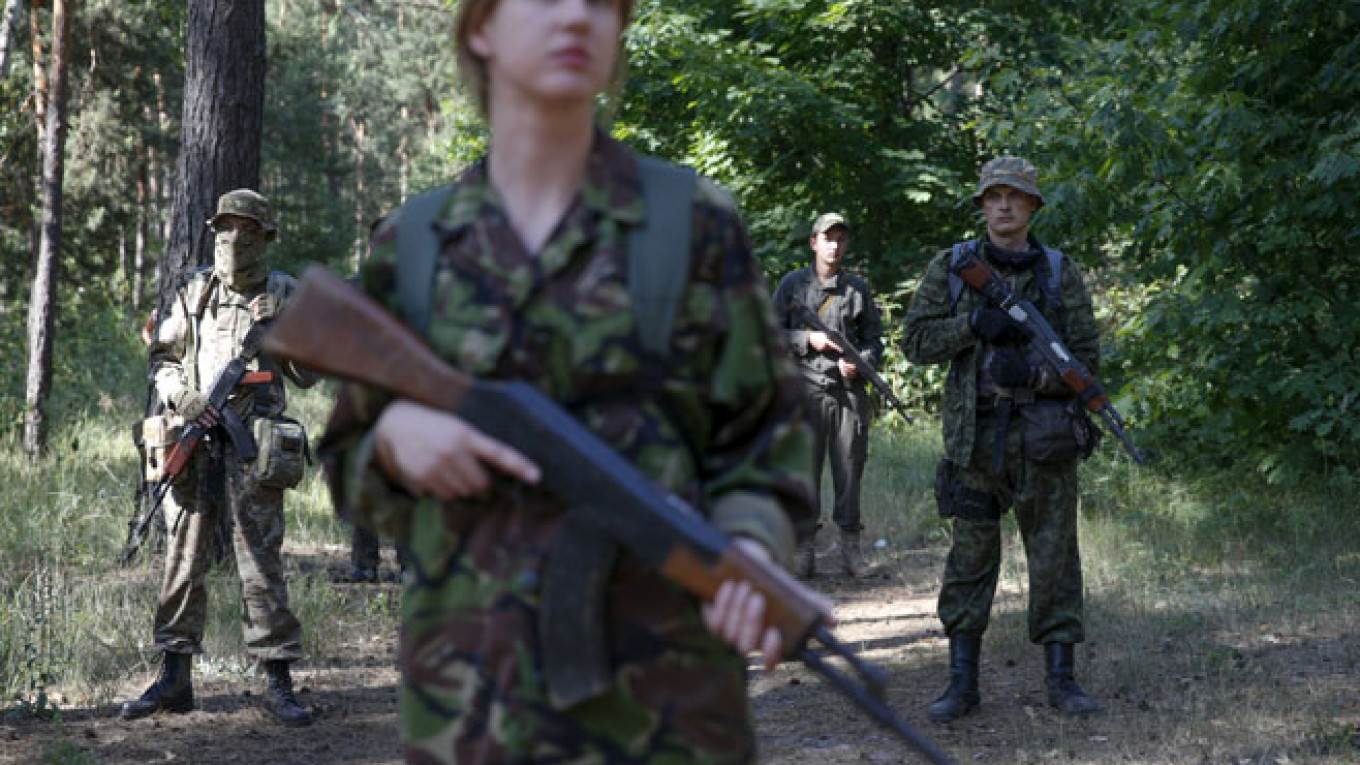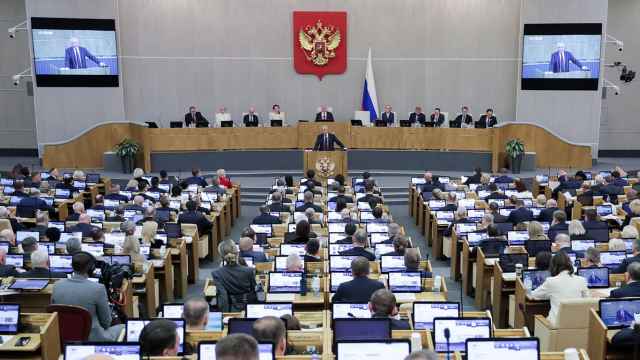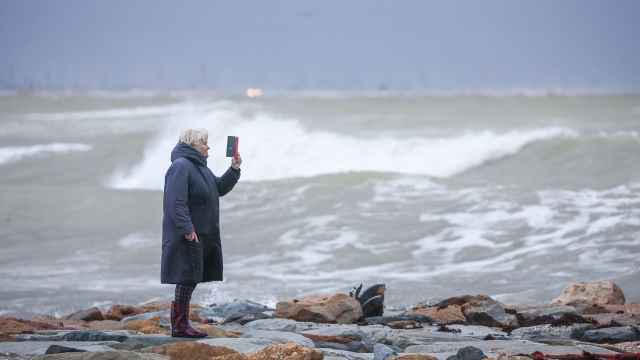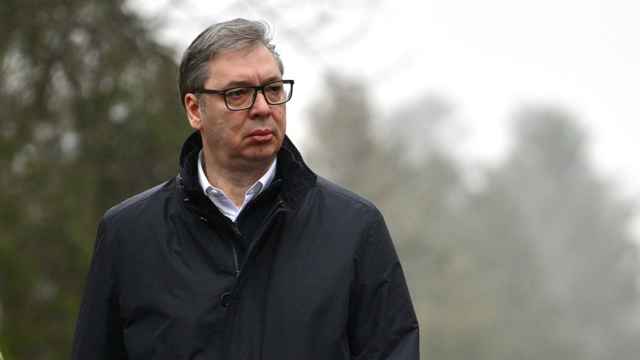TALLINN — The United States will pre-position tanks, artillery and other military equipment in eastern and central Europe, U.S. Defense Secretary Ash Carter announced on Tuesday, moving to reassure NATO allies unnerved by Russian involvement in Ukraine.
Carter, during a trip to Tallinn, said the Baltic states — Estonia, Lithuania, Latvia — as well as Bulgaria, Romania and Poland had agreed to host elements of this heavy equipment. Some of the equipment would also be located in Germany.
The U.S. decision to stage heavy equipment closer to Russia's borders aims to speed deployment of rotating U.S. forces as NATO steps up exercises in Europe following Russia's annexation of Ukraine's Crimea region last year.
Neighboring NATO countries, especially the former Soviet Baltic states with their Russian minorities, fear Russia could foment trouble on their territories. Moscow denies any such intention.
Flanked by defense chiefs from the Baltic states, Carter quoted Obama during a visit to Estonia saying: "You lost your independence once before. With NATO, you will never lose it again."
"That's because the United States and the rest of the NATO alliance are absolutely committed to defending the territorial integrity of Estonia, Latvia and Lithuania," Carter said.
Under NATO's founding treaty, an attack on any member state would constitute an attack on all parties. Russia accuses the West of violating post-Cold War arrangements by extending NATO to Russia's frontiers, something the West denies
Estonian Defense Minister Sven Mikser welcomed the decision on pre-positioning, as did representatives from Latvia and Lithuania. Mikser said his nation was ready to host pre-positioned equipment and a rotational presence of U.S. forces.
"We have reasons to believe that Russia views the Baltic region as one of NATO's most vulnerable areas, a place where NATO's resolve and commitment could be tested," Mikser said.
Lithuania's Foreign Minister Linas Linkevicius welcomed the move but said more needed to be done, underscoring the Baltic state's hawkish attitude to Russia. The government has already reinstated military conscription.
"What was done so far was already quite efficient [but] there could be more," Linkevicius told Reuters. "What we are doing, it's a minimum."
The United States had not formally disclosed where in Europe the equipment would be stored before Tuesday but news reports about military planning triggered an angry response from Moscow ahead of Carter's trip to Europe this week.
A Russian Defense Ministry official said stationing tanks and heavy weapons in NATO states on Russia's border would be the most aggressive U.S. act since the Cold War.
President Vladimir Putin, who denies any direct involvement in Ukraine and accuses the West of stirring tensions, announced Russia would add more than 40 intercontinental ballistic missiles to its nuclear arsenal this year.
Carter has condemned Putin's return to what he considers Cold War-style rhetoric.
A fact sheet provided by the U.S. military said the United States' pre-positioning would include about 250 tanks, Bradley infantry fighting vehicles and self-propelled howitzers.
The amount of equipment that would be temporarily stored in each country would be enough to supply either a company, so enough for about 150 soldiers, or a battalion, or about 750 soldiers. Much of it is already in Europe, officials say.
Carter said the equipment would move around as needed, to support exercises in Europe.
U.S. officials say Ukraine has illustrated the importance of being able to counter "hybrid warfare," the blend of unidentified troops, propaganda and economic pressure that the West says Russia has used there.
It also involves cyber warfare. Carter also announced plans on Tuesday to work with an Estonia-based NATO cyber center to help allies develop cyber defense strategies and critical infrastructure protection planning.
A Message from The Moscow Times:
Dear readers,
We are facing unprecedented challenges. Russia's Prosecutor General's Office has designated The Moscow Times as an "undesirable" organization, criminalizing our work and putting our staff at risk of prosecution. This follows our earlier unjust labeling as a "foreign agent."
These actions are direct attempts to silence independent journalism in Russia. The authorities claim our work "discredits the decisions of the Russian leadership." We see things differently: we strive to provide accurate, unbiased reporting on Russia.
We, the journalists of The Moscow Times, refuse to be silenced. But to continue our work, we need your help.
Your support, no matter how small, makes a world of difference. If you can, please support us monthly starting from just $2. It's quick to set up, and every contribution makes a significant impact.
By supporting The Moscow Times, you're defending open, independent journalism in the face of repression. Thank you for standing with us.
Remind me later.






